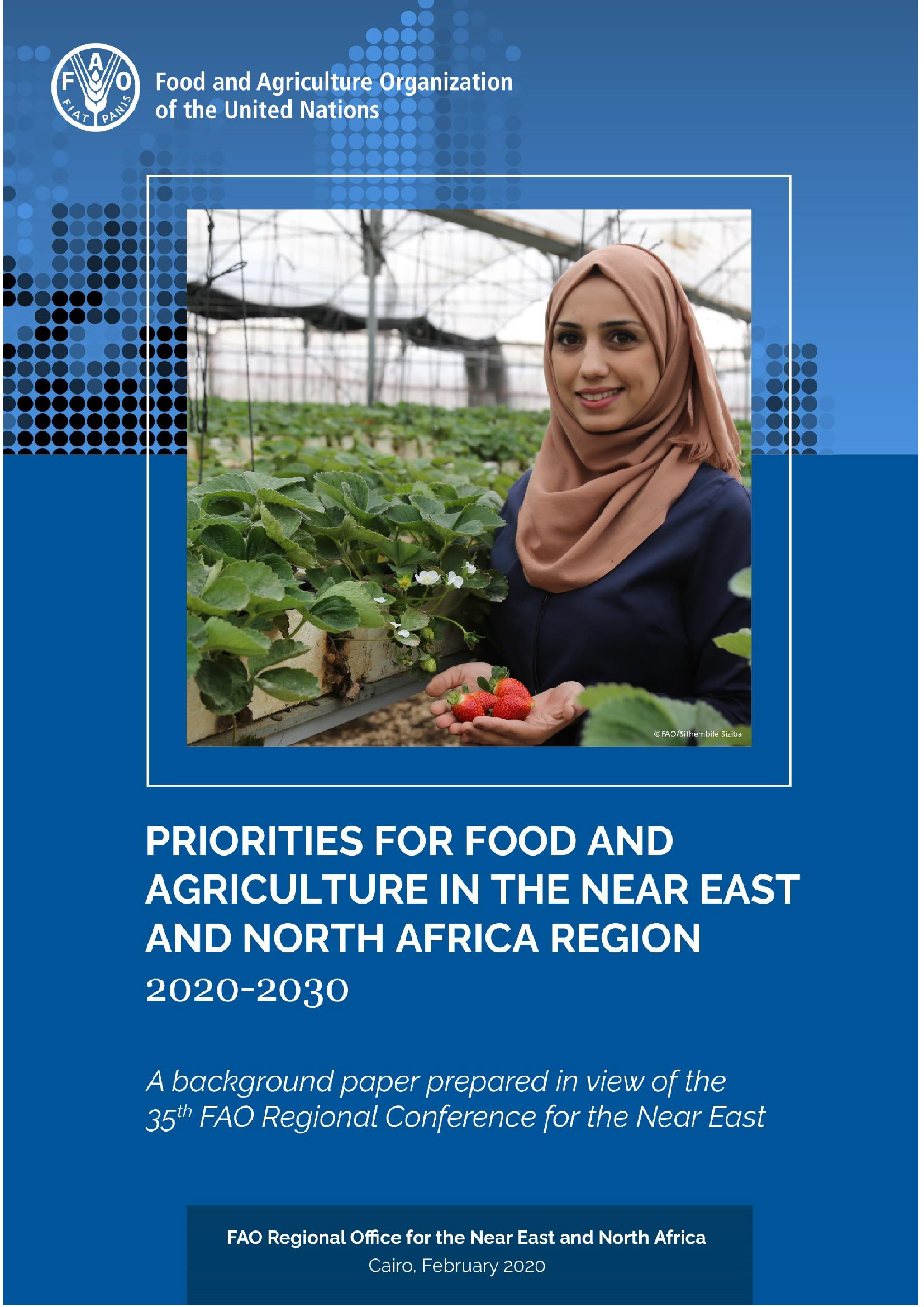Regional Priorities

Regional Priorities
The 2030 Agenda guides FAO work in support to member countries. FAO’s Strategic Framework seeks to support the 2030 Agenda through the transformation to more efficient, inclusive, resilient and sustainable, agri-food systems for better production, better nutrition, a better environment, and a better life, leaving no one behind.
Under the overall framework of “Transforming food systems to achieve the SDGs”, Member Countries have identified four major priorities on which to focus FAO action in the Near East and North Africa (NENA) region.
Countries in the Near East and North Africa region face numerous common challenges to achieving improved food security, nutrition and inclusive agricultural development. This is due to persistently high rates of population growth, increasing urbanization, low growth in food production and declining productivity.
Increasingly scarce and fragile natural resources are affecting food production which is quite low in the region. Due to its structurally high level of water scarcity and aridity, the region’s agricultural production will significantly suffer from the negative impacts of climate change.
Limitations in the supply of food make the region a large and growing importer of basic foodstuffs. This heightens its vulnerability to hikes and volatility in international food prices.
In addition to the long standing structural challenges to food security, several countries in the region remain under civil insecurity and many others are facing protracted crisis. In those countries, chronic under-nutrition is significantly increasing, greatly affecting capacities of member states to eradicate food insecurity and malnutrition.
Facts & Figures in the Region
- 69 million undernourished people in 2020 (15.8% of the population)
- Around 49.4 million people experienced severe food insecurity in 2020
- Around 141 million people affected by moderate or severe food insecurity in 2020





